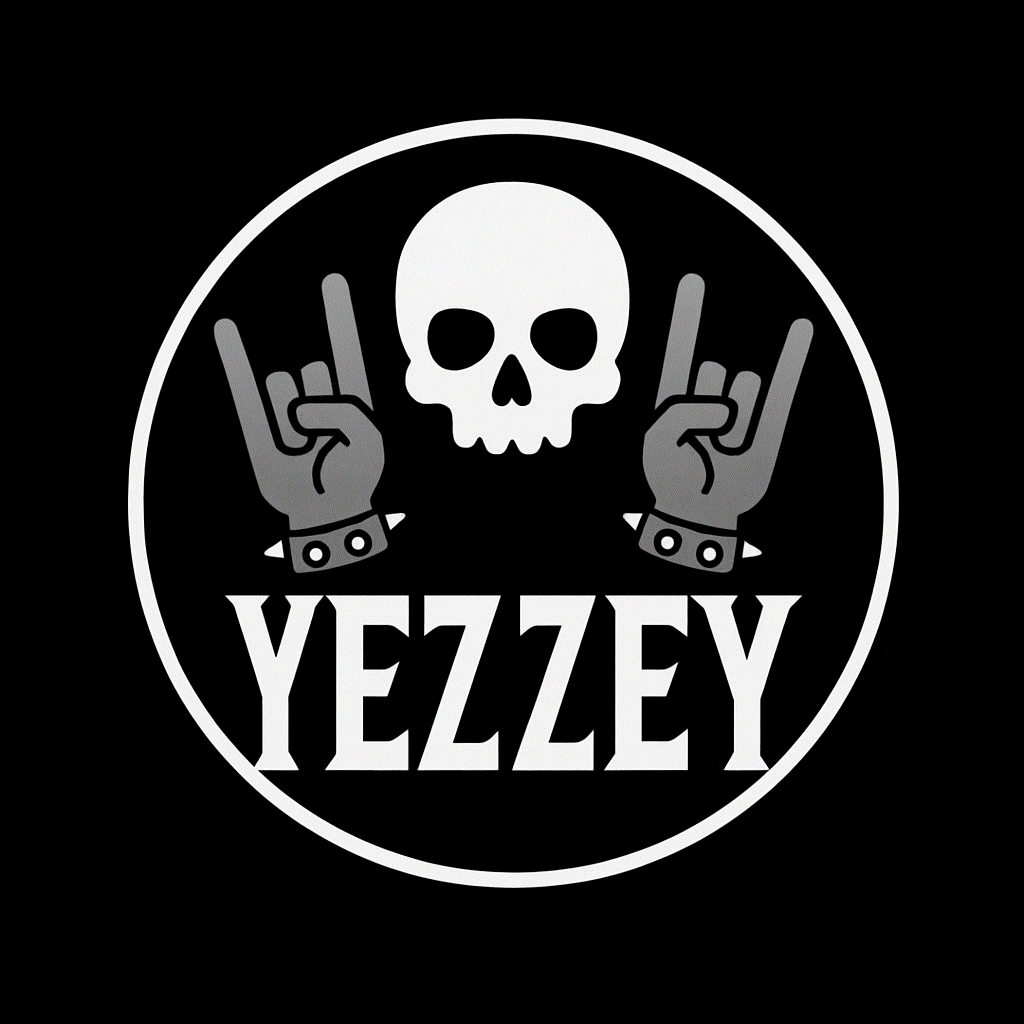What if someone started a real underground music label on the dark web. Bitcoin only, no banks, no streaming and no middlemen. Artists could drop music, earn for say 5 or 10 years, then the rights go to the public domain. No corporate ownership, no lifetime contracts.
Could a label like that actually work?
Why would an artist sign with a label that has none of the marketing, distribution, or legal capabilities of a major label and serves an extremely limited/niche audience (bitcoin users)? Why would they give up their IP for free when it’s how they pay rent?
I think the system you’ve envisioned is unnecessarily limited and lacks the main reasons to sign with a label in the first place. I recognize labels are largely shitty and mistreat their artists, but they still serve a purpose.
More options for art is not a bad thing, constraints are.
“ability to pay for food” is not constraint
Sure, but how is your proposal any better than an artist just releasing their work on bandcamp or soundcloud? At least those platforms accept common payments. I really think that your insistence on crypto tanks the whole idea, as it significantly limits who would actually get the music in the first place.
Releasing music isn’t like software development, the audience doesn’t have the familiarity with or, for the most part, the facility to use crypto. As far as the average Joe knows, crypto is the domain of scammers and criminals, and it’s largely not useable as currency in day to day life.
I just wonder what music culture looks like if you strip out banks, ads, and algorithms entirely. Not saying crypto fixes it, just that it changes who holds the keys.
So a label where artists have even fewer rights and protections than with any other label? Why would anyone go for that?
Because the current rules are way out of proportion. It would encourage artist freedom without large constraints. It would be an alternate to the mainstream. It would foster new art that wouldn’t be possible with the current standard.
How would it do anything but the opposite of all that? For the majority of artists, they don’t break even on a release. Even most of those who do only do so long after 5 years have elapsed. If they’re really lucky, someone might come across a track a decade later and licence it for a TV show.
So you’re advocating less money for artists, and the loss of their rights (and potential income) after 5 years. And you think that would encourage or foster new art?
There are labels similar to that. Dingleberry Records for example. They finance records out of their own pocket, often together with other labels, and then produce and sell LPs and CDs for non profit. Records don’t go public domain though, as far as I know.
What do Bitcoin and dark web add to the conversation, exactly? That can be done with fiat currencies on the regular-old internet. (It could be done with brick-and-mortor stores, and vinyl, for that matter.)
Whether it could “work” (as in, become popular) is another question, but darknet-only and cryptocurrency-only would make it harder for it to take off than just putting it on the internet and letting people pay with Visa, Mastercard, Discover, PayPal, etc.
There’s a few different layers to this. Others have jumped at you a bit, but I hope to talk about this a little more understandingly…
When it comes to music distribution, as in, giving your music to others, the solutions already are in place to provide a federated distribution of music (see groove shark) which would in theory be a good way to provide a place to stream music while also allowing distribution to others. Even if you want to go through paid services, it has never been easier to publish music (though there are caveats, you do generally have to give up royalties to middlemanagers. This is generally ignored by people in this thread, but it is a problem for most artists.) The alternate distributions like groove shark simply don’t have enough users yet, and I can’t attest for whether it has the right features to be a substitute for bandcamp (there’s no ability to set up payment, last time I checked.) It’s really the case that independent labels aren’t making good use of technology that isn’t just putting up a random Bandcamp page.
You’ll notice I didn’t make any mention of crypto above: That’s because I’m not sure of the practical uses of crypto in this particular regard beyond a “buy it as a collectors item” style distribution via NFT and I think that bubble has more or less completely popped.
There’s been attempts from the likes of iTunes to provide encrypted song binaries, and in theory you could encrypt a song using a crypto transaction to store the metadata, but it would both be unpopular and entirely centralized (you would need to have an authentication server for tying transactions to keys.)
So short of not having to deal with payment processors (which is good for anti-censorship, fwiw), there’s not a lot of benefit to using crypto specifically. And transaction costs would somewhat inflate the price of transactions and would basically force users to buy “albums” again (so that you don’t get hammered with transaction fees.)
Lastly, the 5 to 10 years of earning before the rights go “public domain” is a very flawed concept. I know there’s a lot of anti-copyright advocates here on lemmy, but there’s some truth to the idea that artists actually value copyright to protect their own work and it would be very difficult to convince an artist to sign a deal that would effectively limit their own ownership; This is especially true in the era of AI data farming. You’d be better off making the decision (as a label) to claim ownership up to x dollars in debt to produce the album (there’s always a cost, with a slim profit margin to be expected) and then hand the ownership entirely back to the artist once they’ve recouped the cost to produce the album to effectively put it back in control of the artist to let them do as they please. A record label isn’t just about making the music listeners happy, but to empower the artist to create art that they otherwise couldn’t afford. Most record labels are disliked by labels not because they withhold ownership from the listener, but because they aren’t always paid equally in royalties due to ownership clauses in their contracts that allow record labels to extract profit from work that they’ve already well earned the loss with profit on.
only the tech bros or creepy dudes would access and pay darkweb currency
Why need darkweb when you have stuff like bandcamp? Or release directly to streaming service, lots of indies does it this way today. It’s better because artist get to keep their copyright and without label company telling them what trend they need to follow.
Streaming services make it to where you don’t own your music that you release onto the platform. Said streaming service does, and they’ll use it to make music using AI, which is why services like Spotify are doing just that, and the reason they DRM the music you want to listen to on the platform.
Wavlake is an example of what to do with a streaming service, given that they use RSS for their distribution, though it’s limited I think in some ways.
Seems too niche to be worth the time and money. However, advertising music only available for bitcoin on the dark web could work as a marketing tactic if the music appeals to that niche audience.
Thing is, I’m on the dark web, I use cryptocurrency and I like underground music, and this doesn’t appeal to me. In my mind, I’m wondering why they didn’t just build and host their own website instead, and sell their album for crypto. I would question why they only accept bitcoin if they’re trying to be subversive. I go to the dark web for drugs, not music, and would be paying in Monero.
Alternatively, some artists have already NFT’d their music so people can purchase it for crypto. And, long before that, radiohead released In Rainbows independently through their website, which only took donations. So there are ways to skip the middlemen without the gimmick.
Could it work? Yeah, it could. I don’t think it would work very well.
There just so happened to be a BTC-based label that’s clear web and currently being made, and it’s called 2020 Innovations. It’s currently being built right now, and is on Twitter and Nostr. No Fediverse as of right now, though I could maybe have my producer speak with the owner about it.
The name is idiotic but the concept has potential.
Phillip really needed a numerologist to help with the naming, and it’s clear he didn’t have one on hand.
Copyright rules cannot be made “fairer” (whatever that might mean) in a small place. The big players would simply steal the work and make their profit from it.
If you want to change copyright, you need to start in the biggest places, that is, many countries together.
A feeling that seems to underly this question is that record companies are some capitalist evil nightmare and that crypto is the saviour here. I don’t think any of the comments here address that part so I thought I might try.
I’m guessing most of this post is thinking of small musicians but to think about how much money a record label makes I’m going to be lazy and use a number I saw recently - Taylor Swift grossed 2 billion from ticket sales for her Eras Tour and got about 190 million after tax and payments for services:
That’s a similar sort of order to the fines we’re seeing for laundering in crypto - Binance pleaded guilty to money laundering and paid 4 billion in resolutions:
https://www.justice.gov/archives/opa/pr/binance-and-ceo-plead-guilty-federal-charges-4b-resolution
And similar to the gains Trump has made since shortly before coming into office, an estimated 1 billion from crypto:
It seems like a lot of those payments that Trump made money from are some form of corruption. And a large portion of the amount that record labels make.
It’s reasonable to look at the wealth of record companies and to wish it was more reasonable to distributed. It’s also reasonable to look at how little artists make of certain transactions and think there must be something amiss. I honestly have no idea on the accuracy of those two, the world is counterintuitive sometimes but I’m sure there is a lot of room for improvement.
Aiming to use crypto as one of the mechanisms for improvement seems pretty far fetched to me from a pragmatic perspective. (But I think both the anti record company sentiment and the pro crypto sentiment have similar ideologies.) From what I’ve seen crypto has only demonstrated usefulness as a mechanism for:
- investing in a bubble/bust market (that helps make some people very rich)
- funnelling scam payments (that helps make some people rich)
- funnelling payments for favours / corruption (that helps make some people rich)
Sorry, I know this is definitely a tangent from the OP but I was closing tabs and Trump’s comment on pardoning Changpeng Zhao is too good not to share:
Which one? Who is that?.. The recent one? Yes, the? I believe we’re talking about the same person because I do pardon a lot of people. I don’t know, he was recommended by a lot of people. A lot of people say that—are you talking about the crypto person?—A lot of people say that he wasn’t guilty of anything. He served four months in jail, and they say that he was not guilty of anything, that what he did, well, you don’t know much about crypto. You know nothing about, you know nothing about nothing. You’re fake news. But let me just tell you that he was somebody that, as I was told, I don’t know him, I don’t believe I’ve ever met him. But I’ve been told a lot of support. He had a lot of support, and they said that what he did is not even a crime. It wasn’t a crime, that he was persecuted by the Biden administration, uh, and so, I gave him a pardon at the request of a lot of very good people.
It doesn’t even exist yet and North Korea already stole the royalties










